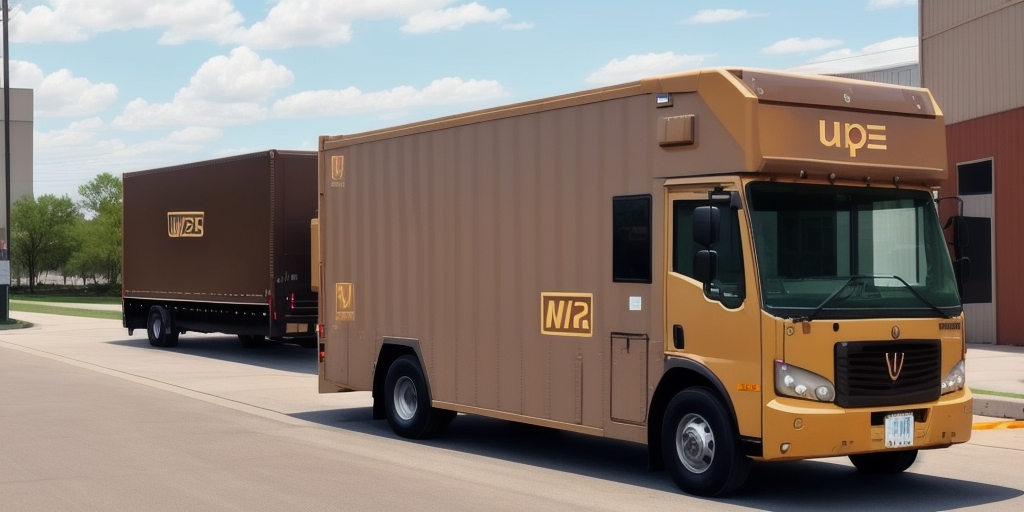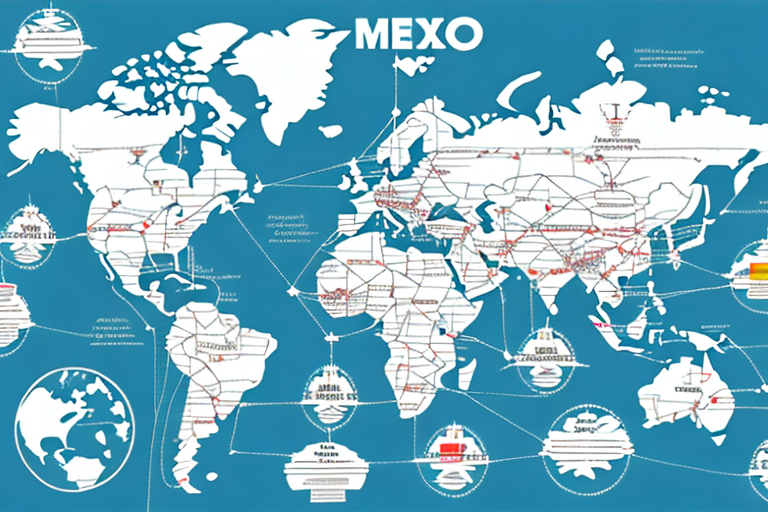What is Parcel Shipping?
Parcel shipping is a service that enables individuals and businesses to send packages and parcels both domestically and internationally. This service is crucial for e-commerce, allowing businesses to efficiently move goods from one location to another. Parcels can vary in size, weight, and type, catering to a wide range of shipping needs.
How Parcel Shipping Works
Step-by-Step Process
The parcel shipping process involves several key stages to ensure the safe and efficient delivery of goods:
- Preparing the Parcel: Securely packaging the contents using appropriate materials.
- Choosing a Shipping Carrier: Selecting a carrier based on destination, cost, and delivery speed.
- Labeling the Parcel: Including sender and receiver addresses along with a tracking code.
- Submitting the Parcel for Shipping: Dropping off at a designated location or arranging for pick-up.
- Tracking the Parcel: Monitoring the parcel’s progress through the carrier's tracking system.
- Receiving the Parcel: Ensuring the parcel arrives safely at the intended destination.
Benefits of Parcel Shipping for Businesses
Expanded Reach and Customer Satisfaction
Parcel shipping allows businesses to reach customers globally, enhancing sales opportunities and customer satisfaction. According to the Statista 2023 report, global e-commerce sales surpassed $5 trillion, underscoring the importance of reliable parcel shipping in meeting consumer demand.
Increased Efficiency and Cost Savings
Utilizing parcel shipping services can streamline the shipping process, reduce handling time, and lower overall costs. Businesses can benefit from bulk shipping rates and optimized logistics, which contribute to improved profit margins.
Choosing the Right Parcel Shipping Carrier
Key Factors to Consider
- Price: Compare pricing structures to find a cost-effective solution that fits your budget.
- Delivery Times: Select carriers that offer delivery speeds aligning with your business needs.
- Reputation: Research carrier reliability through reviews and industry ratings.
- Insurance Options: Ensure carriers provide adequate insurance to protect your goods.
Top Parcel Shipping Companies
- UPS: Offers next-day delivery, international shipping, and comprehensive tracking services.
- FedEx: Provides overnight delivery, global shipping solutions, and specialized services for e-commerce.
- DHL: Known for express international shipping, door-to-door services, and efficient customs clearance.
- USPS: Provides reliable domestic and international shipping options, including Priority Mail and First-Class Mail.
Cost-Saving Tips for Parcel Shipping
Optimize Your Shipping Strategy
- Select the Right Carrier: Compare carriers to find the most economical option without compromising quality.
- Minimize Package Weight and Size: Reducing the size and weight of packages can significantly lower shipping costs.
- Use Flat-Rate Boxes: Utilize carriers' flat-rate options to save money on shipping regardless of package weight or size.
- Leverage Online Shipping Tools: Access discounted rates through online platforms and shipping software.
Best Practices for Parcel Shipping
Proper Packaging
Ensuring parcels are well-packaged is essential to prevent damage during transit. Use high-quality materials such as sturdy boxes and padded envelopes, and include adequate padding to secure the contents. Clear and accurate labeling also facilitates smooth handling and delivery.
Tracking Parcels
Implementing a robust tracking system allows businesses to monitor the status of shipments in real-time. This not only aids in inventory management but also enhances customer transparency and satisfaction by providing timely delivery updates.
Avoiding Common Mistakes
- Incorrect Addressing: Double-check addresses to prevent misdelivery.
- Insufficient Packaging: Use appropriate packaging materials to protect goods.
- Poor Delivery Instructions: Provide clear instructions to carriers to ensure accurate delivery.
- Neglecting to Track Packages: Always track shipments to address any issues promptly.
Future Trends in Parcel Shipping
Technological Advancements
The parcel shipping industry is rapidly evolving with the integration of advanced technologies. Innovations such as drone deliveries and artificial intelligence for route optimization are set to revolutionize the logistics landscape. According to a McKinsey report, the use of AI can lead to a 15% increase in delivery efficiency.
Sustainability Initiatives
Environmental sustainability is becoming a significant focus for parcel shipping companies. Initiatives include the adoption of electric vehicles, bicycle deliveries in urban areas, and the use of renewable energy sources to power operations. These efforts aim to reduce the carbon footprint and promote eco-friendly shipping practices.
Enhanced Speed and Convenience
Customers increasingly demand faster and more convenient delivery options. In response, parcel shipping companies are expanding same-day and next-day delivery services, as well as offering flexible delivery windows to meet consumer expectations.
International Parcel Shipping
Key Considerations
- Customs Documentation: Accurately complete customs forms to avoid delays and additional fees.
- Import Taxes and Duties: Be aware of potential taxes and duties that may apply to international shipments.
- Regulatory Compliance: Understand and comply with the shipping regulations of the destination country.
- Delivery Times: Factor in potential delays due to customs processing and international transit times.
Best Practices for International Shipping
To ensure smooth international parcel shipping, businesses should:
- Research the destination country's import regulations and prohibited items.
- Use accurate and detailed product descriptions on customs forms.
- Consider partnering with carriers that offer comprehensive international services and support.
Conclusion
Parcel shipping is a fundamental component of modern business operations, especially in the thriving e-commerce sector. By selecting the right shipping carriers, optimizing shipping strategies, and staying abreast of industry trends, businesses can enhance their logistics efficiency, reduce costs, and improve customer satisfaction. As technology and sustainability continue to shape the future of parcel shipping, businesses must adapt to leverage these advancements for sustained growth and competitiveness.








